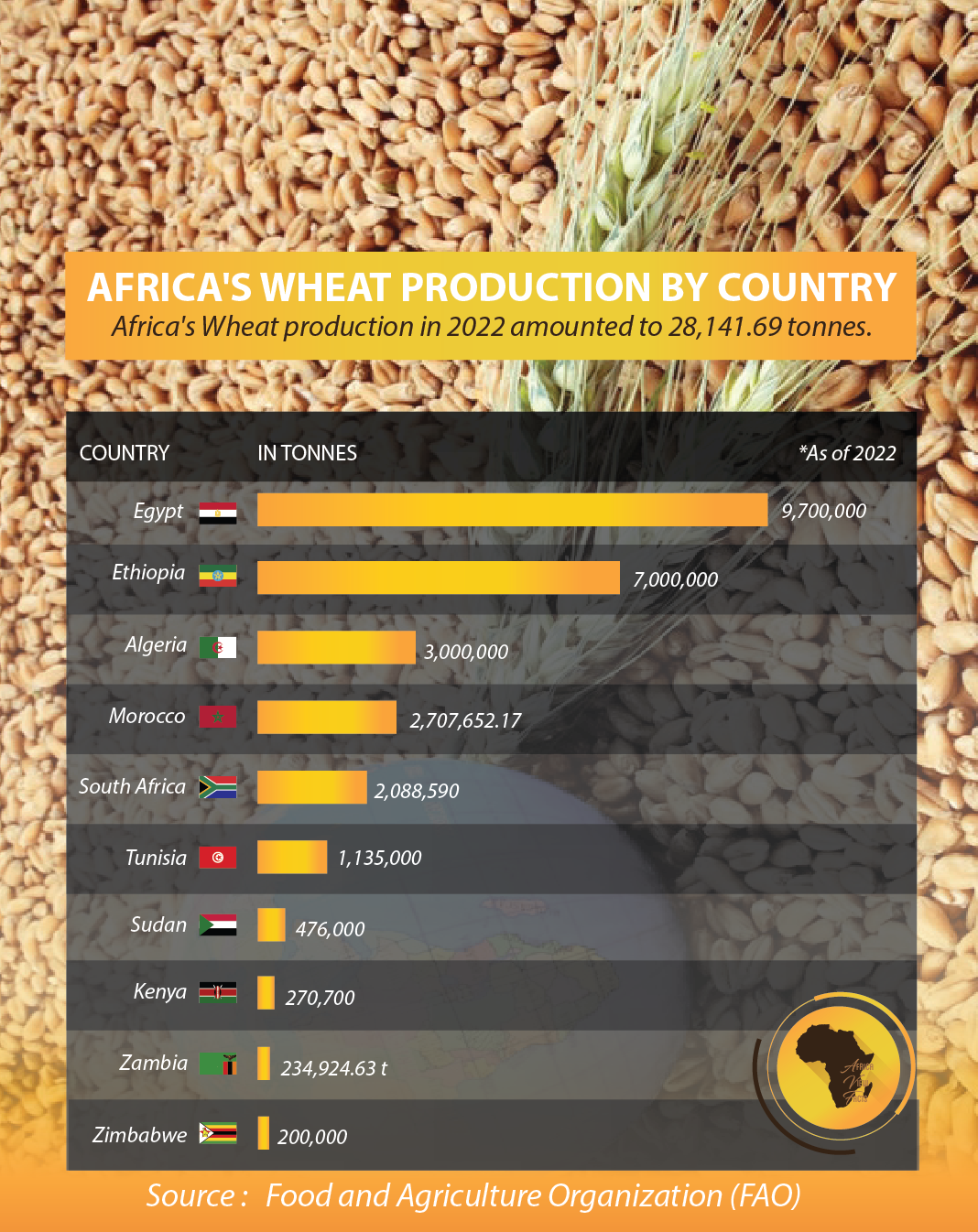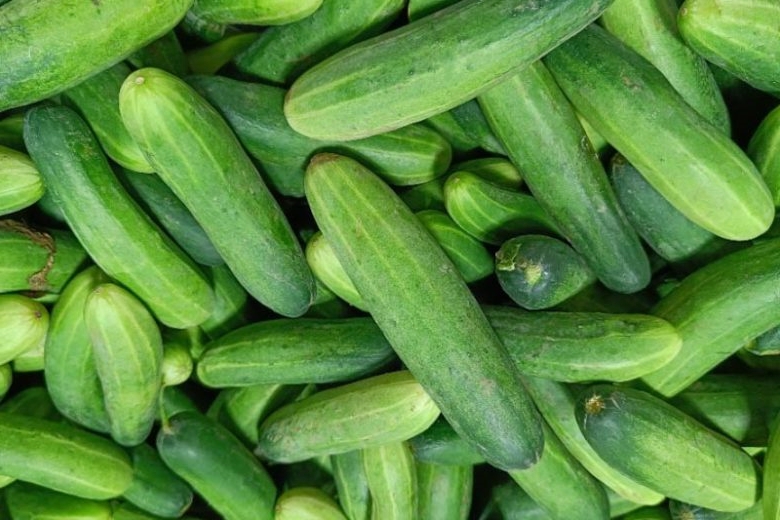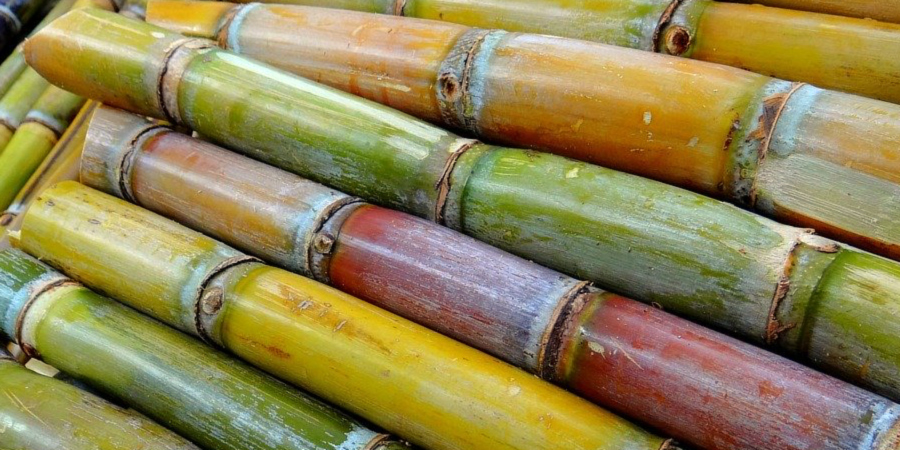Top Wheat producers in Africa

Wheat is one of the most widely cultivated and consumed cereal grains globally, serving as a staple food for a significant portion of the world's population.
It is rich in carbohydrates, providing a substantial energy source, and contains essential nutrients such as protein, vitamins, and minerals. Wheat is versatile and can be processed into various food products, including bread, pasta, and pastries.
Here's the list of the top Wheat producers in Africa for the year 2022 based on the FAO figures:
In 2023, Africa produced a total of 28,141.69 thousand tonnes of wheat. This figure highlights the continent's efforts to boost wheat production to meet the growing demand for food.
-
Egypt
- Production: 9,700,000 tonnes
- Source: FAO
- Egypt leads the continent in wheat production, contributing significantly to Africa's total output. The country has well-established agricultural practices and favorable climatic conditions for wheat cultivation.
-
Ethiopia
- Production: 7,000,000 tonnes
- Source: FAO
- Ethiopia is the second-largest wheat producer in Africa. The country's highlands offer suitable environments for wheat farming, supporting a robust agricultural sector.
-
Algeria
- Production: 3,000,000 tonnes
- Algeria's wheat production benefits from extensive agricultural land and modern farming techniques, making it a significant player in the continent's wheat market.
-
Morocco
- Production: 2,707,652.17 tonnes
- Source: FAO
- Morocco's wheat production is supported by both rain-fed and irrigated farming systems, contributing to its substantial output.
-
South Africa
- Production: 2,088,590 tonnes
- Source: FAO
- South Africa has a diverse agricultural sector, with wheat being a crucial crop. The country's advanced farming technologies aid in achieving high production levels.
-
Tunisia
- Production: 1,135,000 tonnes
- Source: FAO
- Tunisia's wheat production is integral to its agriculture, with efforts focused on improving yield and quality through research and development.
-
Sudan
- Production: 476,000 tonnes
- Source: FAO
- Despite facing various agricultural challenges, Sudan maintains a notable level of wheat production, contributing to its food security.
-
Kenya
- Production: 270,700 tonnes
- Source: FAO
- Kenya's wheat production is vital for its domestic consumption, with ongoing efforts to enhance agricultural practices and increase output.
-
Zambia
- Production: 234,924.63 tonnes
- Source: FAO
- Zambia's wheat sector is growing, supported by government initiatives and investments in agricultural infrastructure.
-
Zimbabwe
- Production: 200,000 tonnes
- Source: FAO
- Zimbabwe rounds out the top ten with its wheat production, focusing on improving agricultural productivity despite economic and environmental challenges.
Conclusion
Wheat production in Africa is crucial for ensuring food security and supporting the continent's growing population. The top 10 wheat-producing countries demonstrate the diverse agricultural capabilities across Africa, each contributing to the overall output with unique strengths and challenges. As agricultural practices continue to evolve, Africa's wheat production is poised to grow, helping to meet both local and global demand for this essential crop.
These figures showcase the Wheat production across various African countries in the year 2022.









